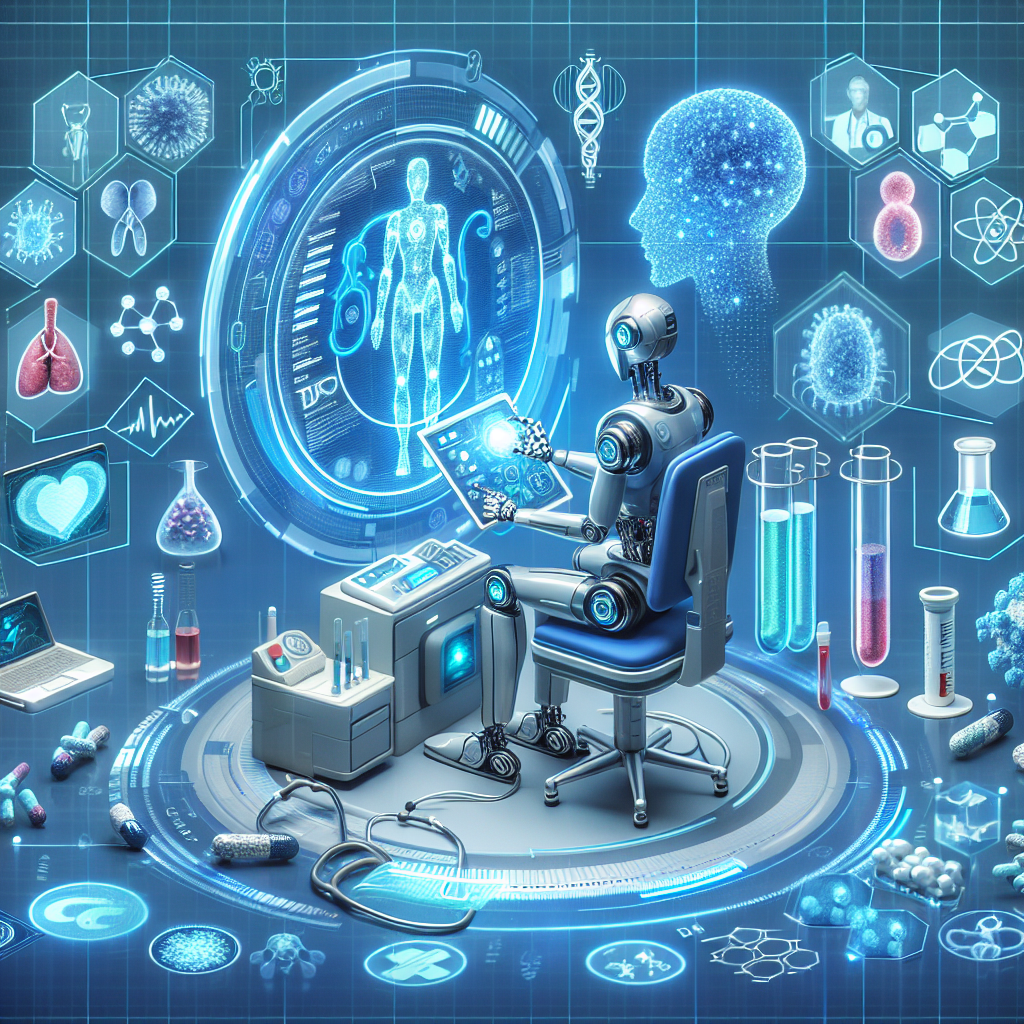The Future of Healthcare Diagnosis: AI
In recent years, artificial intelligence (AI) has made significant advancements in various industries, including healthcare. The use of AI in healthcare diagnosis has the potential to revolutionize the way medical conditions are identified and treated. With the ability to analyze vast amounts of data at a much faster rate than human doctors, AI has the potential to improve the accuracy and efficiency of diagnosing diseases. In this article, we will explore the future of healthcare diagnosis with AI and the impact it could have on the healthcare industry.
Advancements in AI Technology
AI technology has come a long way in recent years, with breakthroughs in machine learning, natural language processing, and deep learning algorithms. These advancements have enabled AI systems to process and analyze large amounts of data, including medical records, images, and genetic information, with a high degree of accuracy. This has opened up new possibilities for AI to be used in healthcare diagnosis, where the ability to quickly and accurately identify medical conditions can make a significant impact on patient outcomes.
AI in Healthcare Diagnosis
AI has already shown promising results in various areas of healthcare diagnosis. One of the most well-known applications of AI in healthcare is in medical imaging, where AI algorithms can analyze images such as X-rays, MRIs, and CT scans to detect abnormalities and diagnose diseases. AI-powered diagnostic tools have been shown to be as accurate as, if not more accurate than, human doctors in identifying conditions such as pneumonia, skin cancer, and diabetic retinopathy.
In addition to medical imaging, AI is also being used in other areas of healthcare diagnosis, such as analyzing electronic health records (EHRs) to identify patterns and trends in patient data, and predicting the likelihood of certain medical conditions based on genetic information. AI systems can also assist doctors in making more accurate and timely diagnoses by providing recommendations and insights based on the latest medical research and guidelines.
The Impact of AI on Healthcare Diagnosis
The use of AI in healthcare diagnosis has the potential to have a profound impact on the healthcare industry. By improving the accuracy and efficiency of diagnosing diseases, AI can help doctors make more informed decisions about treatment options and improve patient outcomes. AI-powered diagnostic tools can also help reduce healthcare costs by identifying medical conditions earlier and preventing unnecessary tests and procedures.
AI can also help address the growing shortage of healthcare professionals, particularly in underserved areas. By automating routine tasks such as analyzing medical images and processing patient data, AI can free up doctors and nurses to focus on more complex and critical aspects of patient care. This can help improve access to healthcare services for patients in remote or rural areas who may not have easy access to healthcare facilities.
Challenges and Considerations
While the potential benefits of AI in healthcare diagnosis are clear, there are also challenges and considerations that need to be addressed. One of the main concerns is the accuracy and reliability of AI algorithms, which can be influenced by factors such as bias in the data used to train the algorithms and the lack of transparency in how AI systems make decisions. It is important for healthcare providers to thoroughly evaluate the performance of AI systems and ensure that they are safe and effective before incorporating them into clinical practice.
Privacy and data security are also important considerations when using AI in healthcare diagnosis. AI systems require access to sensitive patient data, such as medical records and genetic information, to make accurate diagnoses. It is essential for healthcare providers to have robust data security measures in place to protect patient information and comply with regulations such as the Health Insurance Portability and Accountability Act (HIPAA).
The Future of Healthcare Diagnosis: FAQs
Q: Will AI replace human doctors in diagnosing diseases?
A: While AI has shown promising results in diagnosing diseases, it is unlikely to completely replace human doctors. AI can assist doctors in making more accurate and timely diagnoses, but human judgment and expertise are still essential in interpreting the results and determining the best course of treatment for patients.
Q: How can AI improve the accuracy of healthcare diagnosis?
A: AI can improve the accuracy of healthcare diagnosis by analyzing vast amounts of data and identifying patterns and trends that may not be apparent to human doctors. AI-powered diagnostic tools can help doctors make more informed decisions about treatment options and reduce the risk of misdiagnosis.
Q: What are the potential benefits of using AI in healthcare diagnosis?
A: The potential benefits of using AI in healthcare diagnosis include improved accuracy and efficiency in diagnosing diseases, reduced healthcare costs, and improved access to healthcare services for patients in underserved areas. AI can also help address the growing shortage of healthcare professionals by automating routine tasks and freeing up doctors and nurses to focus on more complex aspects of patient care.
Q: What are the main challenges of using AI in healthcare diagnosis?
A: Some of the main challenges of using AI in healthcare diagnosis include the accuracy and reliability of AI algorithms, privacy and data security concerns, and the need for healthcare providers to thoroughly evaluate the performance of AI systems before incorporating them into clinical practice. It is important for AI systems to be safe and effective and comply with regulations such as HIPAA.
In conclusion, the future of healthcare diagnosis with AI holds great promise for improving patient outcomes and transforming the way medical conditions are identified and treated. By leveraging the power of AI technology, healthcare providers can make more accurate and timely diagnoses, reduce healthcare costs, and improve access to healthcare services for patients. While there are challenges and considerations that need to be addressed, the potential benefits of using AI in healthcare diagnosis are significant and have the potential to revolutionize the healthcare industry.

